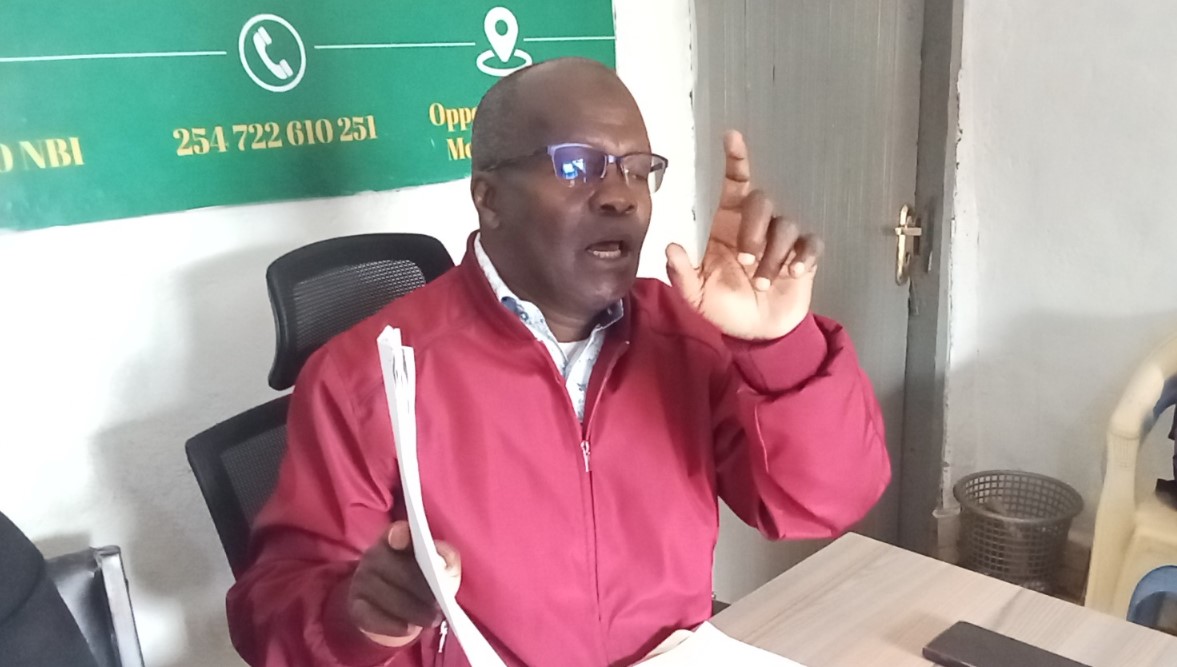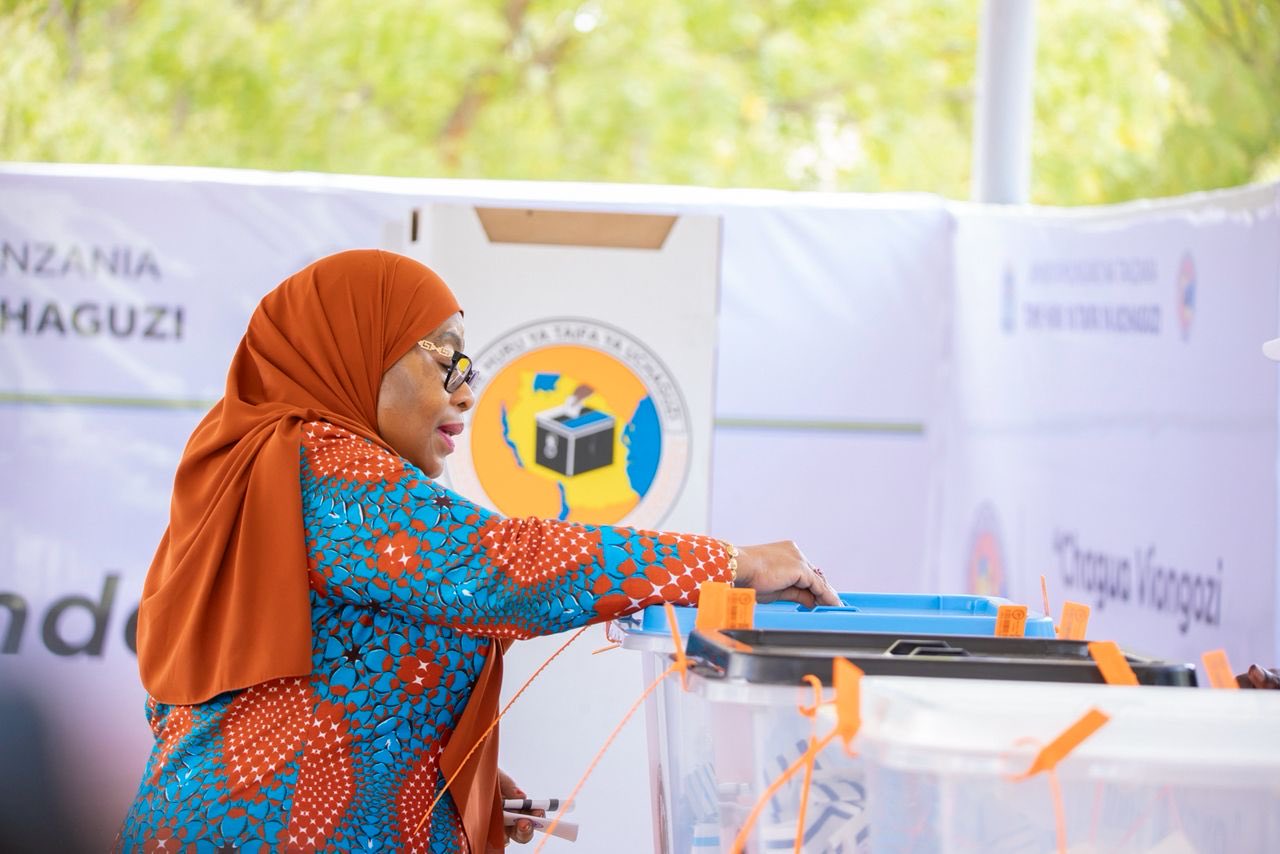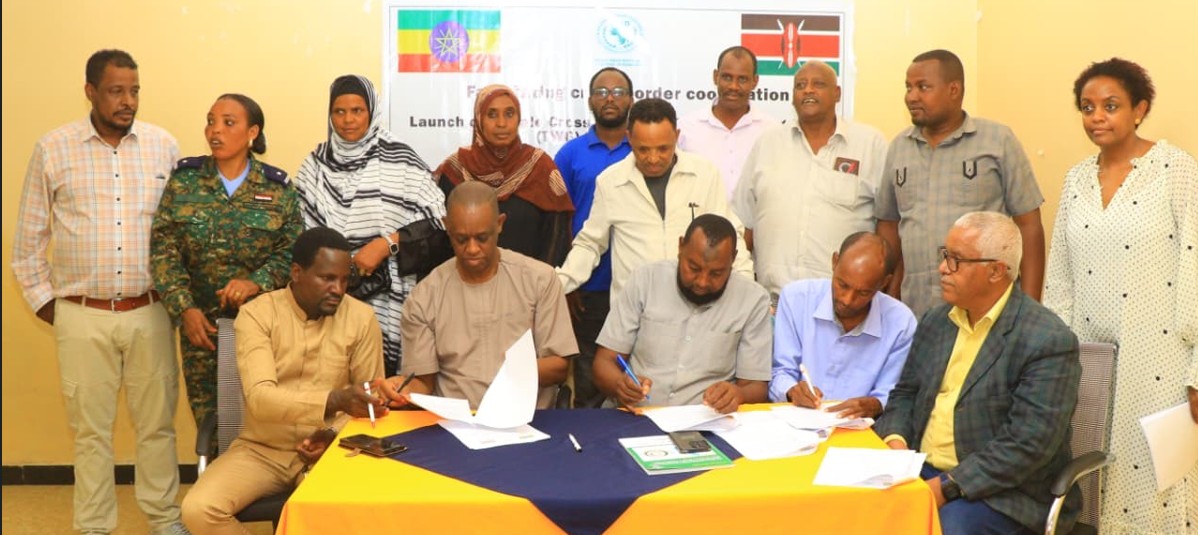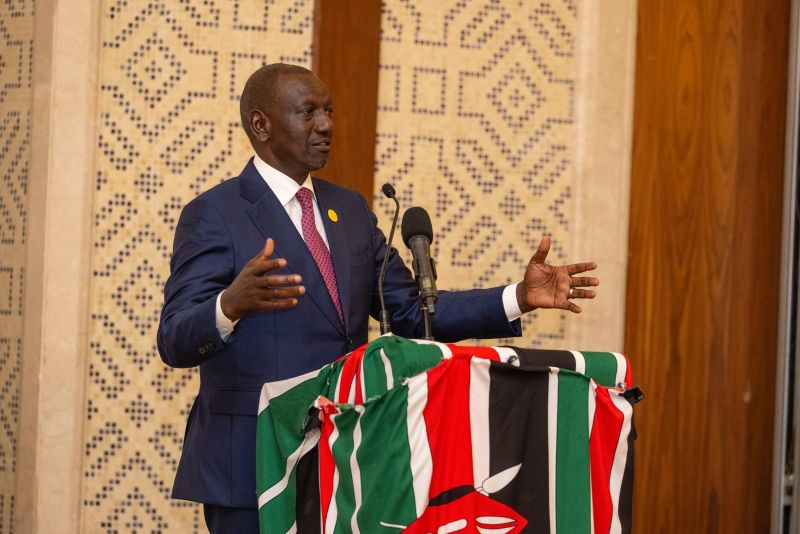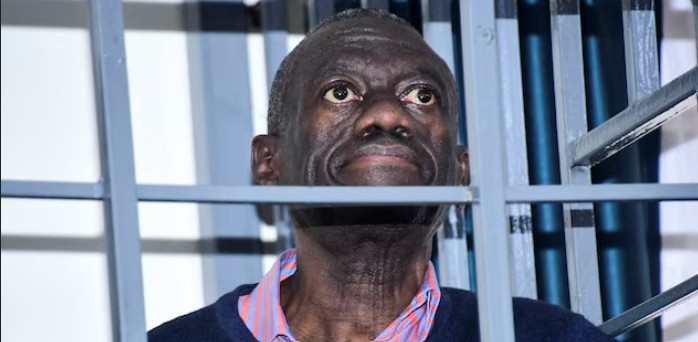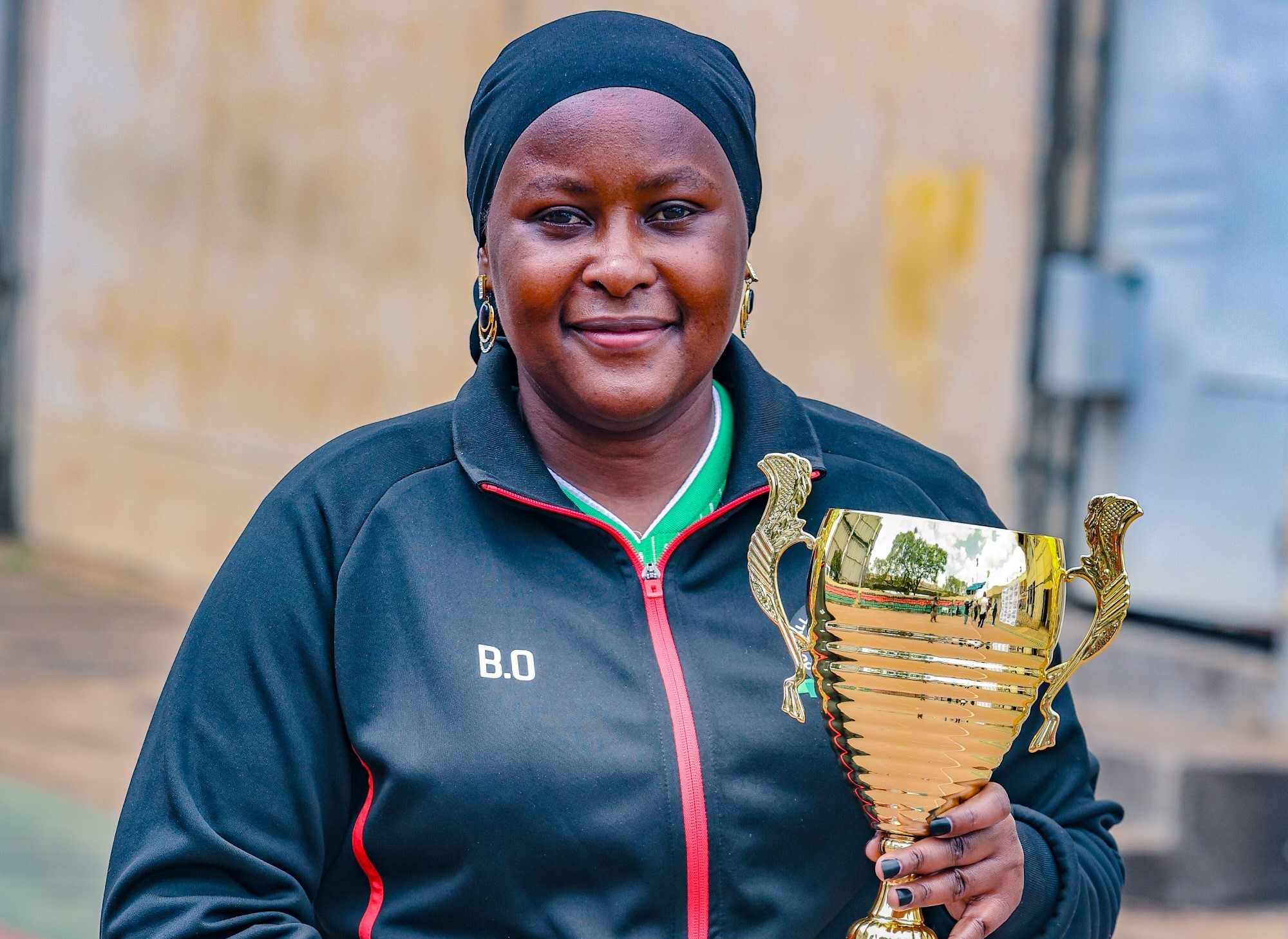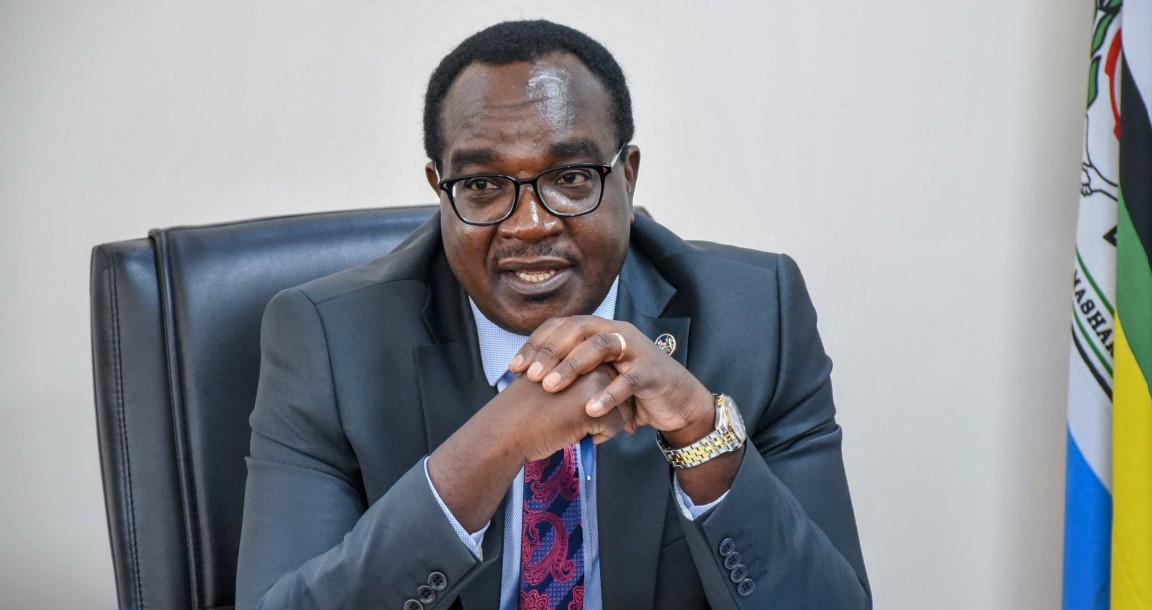Kenya to switch to LPG for cooking in public schools

This transition is expected to significantly reduce the use of firewood, reducing environmental degradation and improving air quality for students and kitchen staff.
To promote environmental sustainability and improve the health of students and kitchen staff, President William Ruto has announced that all 11,000 public boarding schools in Kenya will be connected to liquefied petroleum gas (LPG) for cooking within the next year.
The initiative which was launched on Monday is part of the country's broader strategy to reduce reliance on firewood and charcoal, helping to preserve Kenya's forests while also contributing to the national target of planting 15 billion trees by 2030.
More To Read
- Why every Kenyan kitchen needs a fire extinguisher: Mary Wangari’s story after a devastating blaze
- EPRA raises LPG entry bar to 30,000 cylinders for dealers to curb cartels
- LPG gas tanker burst into flames at Fedha Estate in Nairobi
- Cooking gas prices hit record high despite state efforts to cut costs
This transition is expected to significantly reduce the use of firewood, reducing environmental degradation and improving air quality for students and kitchen staff.
"The children of Kenya in our 11,000 boarding schools, TVETs and other institutions now know that in the next year, they will have gas delivered in schools," said Ruto, adding that the move will also mitigate health risks associated with cooking fires.
The President highlighted the importance of aligning efforts to combat environmental destruction to protect and expand Kenya's natural resources.
"We cannot be looking at achieving that goal when we are cutting trees for firewood use at our homes and schools," Ruto said underlining the urgency of transitioning to cleaner energy sources.
The plan, which has already been approved by the Cabinet, will be implemented by the Ministry of Energy in collaboration with the private sector.
The President expressed confidence in the ability of the Energy Cabinet Secretary, Opiyo Wandayi, and his team to oversee the rollout of the ambitious plan.
"I'm confident that CS Opiyo Wandayi and his team will implement the plan and ensure every school in the country is connected with liquefied gas," Ruto said.
 President William Ruto, Cabinet Secretaries Hassan Joho (Mining) and Julius Ogamba (Education) at Jamhuri High School during the commissioning of the Liquefied Petroleum Gas Programme for public learning institutions in Nairobi on December 16, 2024. (Photo: PCS)
President William Ruto, Cabinet Secretaries Hassan Joho (Mining) and Julius Ogamba (Education) at Jamhuri High School during the commissioning of the Liquefied Petroleum Gas Programme for public learning institutions in Nairobi on December 16, 2024. (Photo: PCS)
Pilot programme
At least 20 public schools have been earmarked for the Liquefied Petroleum Gas Pilot Programme.
The schools include Jamhuri High School, Isiolo Girls High School, St Georges Girls Eldoret, Ogande Girls High School, Thika High School for the Blind, Karatina Girls, Garissa High School, Kipsonoi High School and Barahari Girls High School.
Siala Technical Training Insitute (Rongo), Muranga High School, Immaculate Heart of Mary Luuya Girls School, Eor Ekule Secondary School, Shimo la Tewa High School and Machakos Technical Insitute for the Blind were also listed among the beneficiaries.
The government also earmarked St Paul's Igonga High School, Chavakali Boys High School, Chogoria Boys High School, Our Lady of Fatima Secondary School and Kenya National Polytechnic-Kwale Campus.
Other Topics To Read
The President also called on the private sector to take an active role in financing the initiative.
According to Ruto, the government's minimal involvement in funding will allow the private sector to install LPG infrastructure in schools, including tanks and other necessary equipment.
"This project is going to be financed by the private sector; as we buy gas from them, they will be required to install all the LPG tanks in our schools and other facilities," he explained.
As a result, the President directed the Ministry of Energy to ensure a smooth and rapid implementation process.
He urged that the plan be concluded within one year, with an emphasis on ensuring minimal delay.
"I'm asking the ministry to facilitate a process where the private sector can play their part in making sure that we roll out this programme in the shortest time possible, in any case, not more than the next year," Ruto said.
Once the project is fully rolled out, over 11,000 boarding schools, vocational institutions, and other learning centres will benefit from the shift to LPG.
Kenya has long been a global leader in clean energy, generating approximately 90 per cent of its electricity from renewable sources, including geothermal, wind, solar, and hydropower.
President Ruto reiterated his commitment to making Kenya a model for renewable energy, having previously announced a national goal to achieve 100 per cent renewable electricity by 2030.
Top Stories Today
